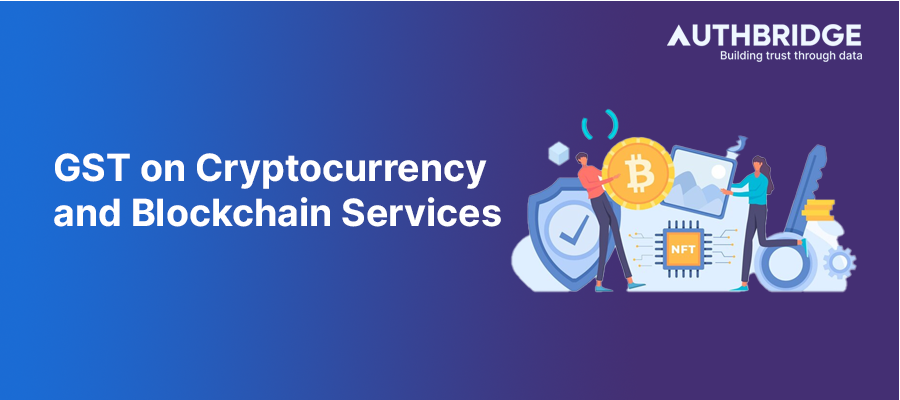Decoding GST For Cryptocurrency And Blockchain Services: Compliance And Strategies

Overview of GST on Cryptocurrency and Digital Assets
The introduction of the Goods and Services Tax (GST) in India marked a pivotal change in the tax landscape, affecting various sectors, including the innovative realms of cryptocurrency and digital assets. As these digital assets gain prominence in the financial market, understanding their tax implications becomes paramount for investors, traders, and businesses engaged in this space. This section will explore the intricacies of GST as it applies to cryptocurrencies and blockchain services, offering a foundational understanding of the tax obligations and entitlements.
Definition and Classification under GST
Cryptocurrencies and digital assets exist in a regulatory grey area, with the GST Act yet to explicitly define or classify them. For the purpose of taxation, these assets are considered based on the broader definition provided in the finance budget, encompassing any form of code or information that represents value and is capable of being stored, transferred, or used in financial transactions. This includes, but is not limited to, cryptocurrencies, non-fungible tokens (NFTs), and other specified digital assets, excluding traditional currencies.
GST Applicability and Rates
Scope of Supply under GST for Cryptocurrency
Determining whether cryptocurrencies fall under the scope of goods or services is essential for applying GST. The current legal framework treats them as "goods" due to their tangible nature and the ability to be transferred or exchanged. This classification has significant implications for how GST is levied on transactions involving digital assets.
GST Rates and HSN Codes for Cryptocurrency Transactions
The GST rate for transactions involving cryptocurrencies and digital assets is a subject of much debate. In the absence of specific guidelines, these transactions are generally taxed at the highest applicable rate for miscellaneous goods, which is currently 18%. This section will discuss the implications of this rate on the market and the potential need for a dedicated HSN code to streamline tax processes.
Transaction Type | HSN Code | GST Rate |
Cryptocurrency Transactions | 960899 (Tentative) | 18% |
Compliance and Input Tax Credit
GST Registration for Crypto Businesses
Businesses operating within the cryptocurrency space must navigate the GST registration process, which is mandatory for those whose turnover exceeds the prescribed threshold. This segment will outline the registration process, including necessary documentation and compliance requirements.
Input Tax Credit for Crypto-related Expenses
The eligibility to claim Input Tax Credit (ITC) on expenses related to cryptocurrency transactions can significantly affect the operational costs of businesses in this sector. This part will delve into the conditions under which ITC can be claimed, the documentation required, and how to optimize tax liabilities through strategic tax planning.
Challenges and Advance Rulings
Legal Challenges in Classifying Cryptocurrency
The ambiguity surrounding the classification of cryptocurrencies poses considerable legal challenges for businesses, tax authorities, and policymakers. This section will explore these challenges in depth, examining the implications for GST compliance and the broader impact on the cryptocurrency market.
Seeking Clarity: Advance Rulings and GST on Crypto
As the industry seeks clarity on GST applicability, advance rulings become a critical tool for crypto exchanges and businesses. This part will discuss recent requests for advance rulings, the potential outcomes, and how these decisions could shape the future of GST on cryptocurrencies.
Conclusion
The Current State of GST on Cryptocurrency
This concluding section will summarize the current state of GST on cryptocurrency and digital assets, reflecting on the complexities and uncertainties that characterize this evolving landscape. It will also highlight the importance of compliance and proactive tax planning for businesses operating in this space.
Future Outlook and Implications for Crypto Businesses
Looking ahead, this part will speculate on the future of GST regulations concerning cryptocurrencies, considering potential legislative changes and their implications for businesses, investors, and the broader digital asset market. The need for ongoing vigilance and adaptability in response to regulatory developments will be emphasized.
Category

Abhinandan Banerjee
(Associate Manager - Marketing)
Abhinandan is a dynamic Product and Content Marketer, boasting over seven years of experience in crafting impactful marketing strategies across diverse environments. Known for his strategic insights, he propels digital growth and boosts brand visibility by transforming complex ideas into compelling content that inspires action.



